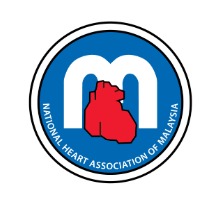Our team is comprised of clinical cardiologists, bioinformatics scientists, and PhD researchers from other fields. We are committed to researching the use of registry data to predict mortality and cardiac events in heart disease patients. In addition, we used air quality data in conjunction with cardiac factors to predict hospital admissions and cardiac deaths.
We hope with this unique calculator, we can help prevent avoidable deaths in the Malaysian population with heart attacks.
In the past 50 years, Malaysia has undergone a rapid evolution in terms of health and disease. Communicable diseases are no longer the leading cause of death, with heart disease taking the top spot for the past decade.
Unstable Angina (UA), Non-ST-Elevation Myocardial Infarction (NSTEMI), and ST-elevation Myocardial Infarction (STEMI) are the three types of heart attacks. STEMI patients have the highest mortality risk among these individuals. Nevertheless, current prediction tools are based on Western populations and may not fully reflect the Malaysian population's specific risk variables.
However, the existing predictive tools, primarily based on Western populations, may overlook the unique risk variables present within our Malaysian community. That's why our team has developed a region specific machine learning cardiovascular calculator. This tool accurately predicts ACS Risk and Mortality, leaning on insights from the NCVD cohort, along with Cardiovascular Risk Diseases (CVD) based on the REDISCOVER cohort while using a recent dataset from 2019. Uniquely, we have incorporated air quality factors into our risk model, offering a comprehensive understanding of environmental impact on cardiovascular health in Malaysia. With this novel step, we can give a more complete picture of the factors that affect cardiovascular health in Malaysia.
At the same time, we also wanted to find out about Cardiovascular Risk Diseases (CVD) by using the REDISCOVER cohort's valuable data. This comprehensive method makes sure that our predictions are comprehensive and complete, taking into account the unique health patterns and trends of our population.
The death rate for ACS patients fluctuates between 5 and 8 percent in the Western population. In Malaysia, however, the mortality rate from the NCVD registry is double at 10 to 12 percent. By giving an accurate risk calculation suited to the Malaysian population, our calculator can promote improved patient treatment and aid in the prevention of preventable fatalities.
Our population is different from the aspect of genetics, dietary, environment, risk factors and healthcare facility. Hence, we may have different risks contributing to the higher death rate that is unbeknown to us. A locally produced calculator helps to provide an accurate estimation to facilitate better patient care. We hope that our novel approach to risk assessment can enhance patient outcomes and inform public health policies and measures to lower the prevalence of cardiovascular disease among the Malaysian population.
In this revised version, we have added information about the various cohorts that the website can predict, as well as how incorporating air quality factors into the risk assessment model can assist in gaining a better understanding of the impact of environmental factors on cardiovascular health in Malaysia. In addition, we highlighted how a locally-produced calculator may provide an accurate risk calculation that is suited to the Malaysian community, resulting in improved patient care and fewer preventable fatalities.
MyHeart - STEMI
We would like to acknowledge the contributions of several organizations that have been integral to our project's success:

We extend our sincere gratitude to the Minister of Science Technology and Innovation, Malaysia. Your support has been crucial to the advancement of our study. Thank you for your commitment to scientific progress and innovation.

We sincerely appreciate the National Heart Association of Malaysia for providing the invaluable study dataset and contributing to the development of our cardiac calculator. Your collaboration has been instrumental in the progression of our research. Thank you for your ongoing support.

We express our sincere thanks to the Department of Environment, Malaysia, for supplying the essential air quality data. This information has significantly contributed to our study and tool development. Your support is highly appreciated.

We gratefully acknowledge the support from Hospital UiTM. Their assistance and cooperation have been essential in the progress of our research. We thank them for their invaluable contribution.
We respectfully thank the REDISCOVER Study Committee at the Centre for Translation Research and Epidemiology (CenTRE), UiTM, for supplying the crucial study dataset and helping to create our cardiac calculator. Your contributions have been critical to the advancement of our research. We appreciate your continued assistance.
Back to Top ^
For more information about our model, including details about its development and the factors it takes into account, please refer to the FAQ section below.